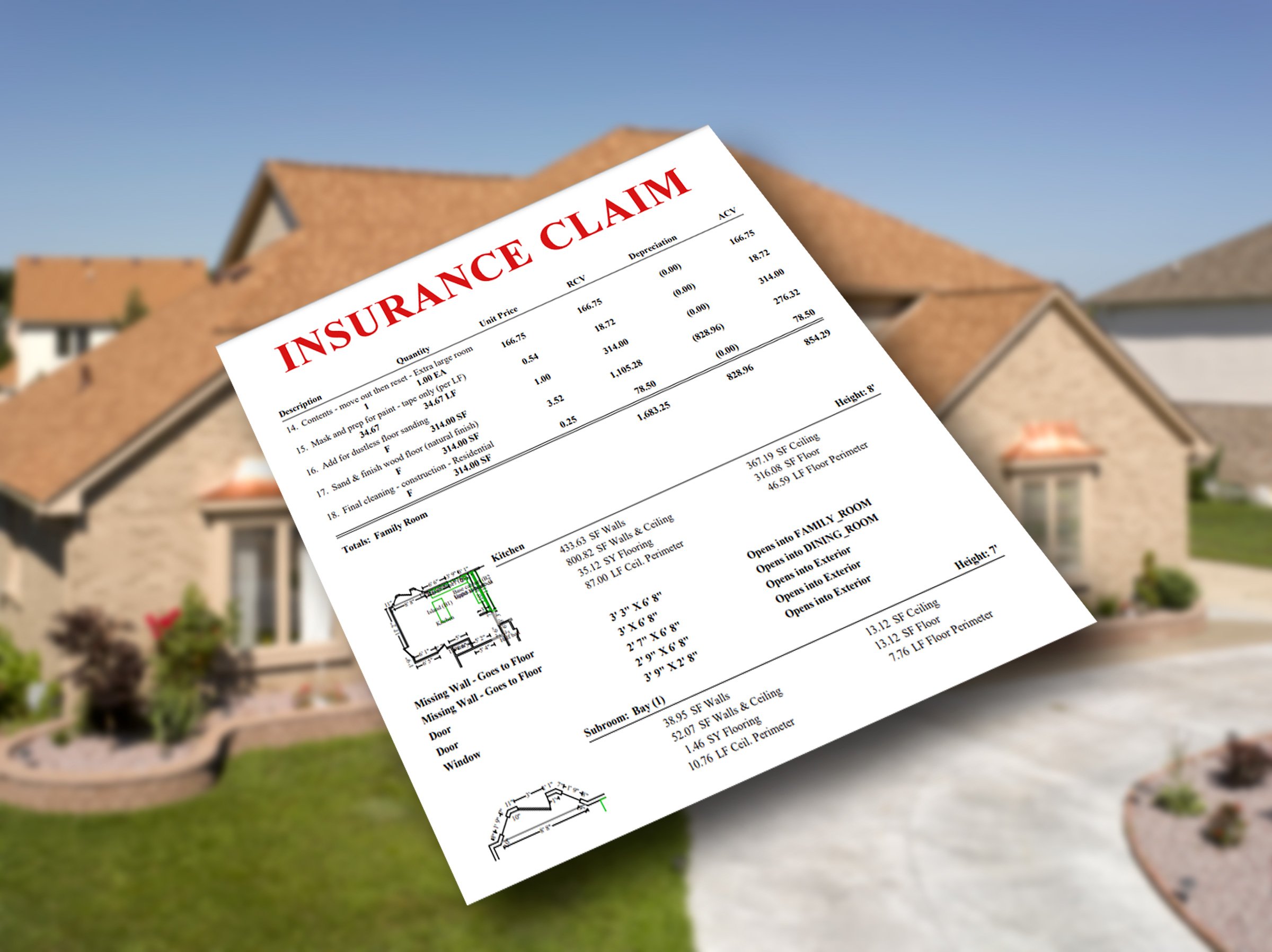Insurance rates in Colorado are skyrocketing. A lot of this is due to the total number of claims for storm damage that are filed in the state. This can make homeowners concerned and hesitant about filing an insurance claim for hail damage because they believe that their rates will automatically go up because they have filed a claim. We get asked this question a lot.
But instead of asking your roofer this question, you know who is better-equipped to answer it? Your insurance agent. Roofers are, honestly, pretty ignorant when it comes to insurance policies and in fact, in many states, including Colorado, roofers aren't legally allowed to try to interpret your policy for you.
So to help answer this question for you, we've asked a local expert: Farmers Insurance agent, Craig England.
Can Your Insurance Rates Go Up After A Hail Claim?
Because of the amount of storm damage claims that get paid by insurance companies, most likely, your rates will increase each year even if there hasn't been a bad storm in your area. Remember that insurance is a cost-sharing business where your money insures other people around the country. When insurance companies have a large loss, they're going to recoup that money and the way they do that is by increasing the rates of their clients. Think of all the big storms there have been just this year so far in Texas and Oklahoma, then remember that you're helping insure those homeowners, just like they're helping to insure you.
But the big question is whether or not your rates will go up if you file a claim for hail damage?
The simple answer to that question is, "Yes." An insurance company can decide to raise the rates on homeowners after hail damage. Just remember, whether you file the claim or not, your premiums will most likely increase since the your insurance company sustained a large financial loss if there has been storm damage within your policy period.
Have You Been Told That Hail Claims Won't Affect Your Rates?
Many people confuse property insurance claims with auto insurance claims which typically do not affect your insurance premium rates. If your car was damaged after a hailstorm, it's considered an act of God, and therefore, it does not affect your insurance premiums (in theory). The weird thing is it's the same hail that damages homes, so why do they count that against a homeowner? I don't know.
Will Having Claims On My Record Raise Any Red Flags If I Want To Shop Around For Cheaper Insurance?
If you have multiple claims, usually in a five-year period, it's a red flag to an insurer, so - YES - your ability to get better rates from other insurance companies will probably be affected if you've filed claims. However, it may not have a massive effect since every company has a specific rating system. Hence, it will affect your eligibility in some companies while others may be lenient considering the catastrophic event.
Generally, many companies may not be willing to help you if you have a history of about two to three claims. If the claims are more than three, it will be more difficult to get an insurer for your home.
One other thing to remember is that you have an insurance report just like you have a credit report. Claims you file attach to the house, so if you just moved into a home and that home has claims made against it, that will affect your rates, too.
And, your claim record follows you, too. If you had filed a claim for hail damage in your previous property, an insurer could still see the records through a CLU report. So, it may still affect your current claim even if you are now in a different house.
What Is A Claim Without Pay, And Does That Affect My Rate?
A "claim without pay," otherwise known as a "zero-pay claim" is a claim on your record that was denied or no benefit or payment was issued to you.
Note that claims without pay can significantly affect your eligibility and rates. One of the greatest mistakes that homeowners make after a storm is to call their insurance company's claims department before calling their local insurance agent and asking how to proceed. As soon as you call the claims department and ask them to send someone out to "check" your roof, you've filed a claim. This is why it's a much better idea to have your roof inspected by a roofer before calling your insurance company. Most insurance agents have enough experience to recommend a contractor to the homeowner to have the roof inspected before calling the claims department. It's advisable to first evaluate the extent of the damages before filing for a claim. You can check for cracks in windows, frames or skylights, dents, gutters spouts, and damaged AC coils.
If you can't assess the damages, contact a local roofing company to perform an inspection and give you an estimate of the damages. A trustworthy and professional roofer will also advise if it's worth going through the entire claims procedure. This way, you will avoid those zero paid claims, which eventually affect your rates and eligibility.
Homestead Roofing has inspected, repaired, and replaced thousands of roofs in Colorado Springs and the surrounding counties.
As a family-owned business, we take every project personally, committing all our efforts to ensure you and your loved ones have an excellent roof for your living space. Contact us today for more information about our roofing solutions.




